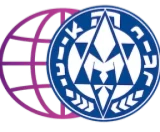Dalia Stekel – Rosh Chinuch Tzeirei Ami B’Chile
Rosh Hashanah is the Jewish New Year and is commemorated by the majority of Am
Israel throughout the world on the first and second days of Tishrei1
(the seventh month of
the Hebrew calendar). This chag focuses on two main ideas: it is the first day of the New
Year, and it is the Day of Judgment – a day of introspection. This is when, at the
beginning of the New Year, the balance of our actions in the previous year is examined,
and we set our actions for the upcoming year.
An essential aspect of Rosh Hashanah is that, on this day of reflection, we ask God for one
more year of life. Although we can repent of many things we have done throughout the
year and know that we wish to do better, we also know that we will make mistakes again.
Why does God, knowing that we will make mistakes again, forgive us and give us one
more year of life? To explain the previous question, I will use Parashat Vayera from the
Book of Bereshit. In this parashah, Sarah asks Abraham to expel his son Ishmael from his
house since she thought he would have a bad influence on Yitzhak (her second son). God
tells Abraham to listen to his wife, and he eventually casts Ishmael out of the house. After
seeing Ishmael in the desert, about to die of thirst, God decides to save him and promises
that he will be the progenitor of a powerful nation. But why did God, knowing that
Ishmael would belong to a people that would be a major enemy of the Jews, decide to save
him? The answer is that God saw Ishmael as a child who, in that moment, had done
nothing wrong and decided to save him.
This chag and the values that derive from it are deeply related to the tnua. Firstly, Rosh
Hashanah is the time of the year when we are offered a chance to change for the better
and grow as a people; we seek personal and spiritual improvement, for this is a
fundamental principle in Judaism. While we wish to improve and be in a constant state of
growth, God grants us one more year of life (in which we must apply what we have
learned, so that the coming year is better than the last). Undoubtedly, this is one of the
primary tasks that we have as educators of tnuot noar: the shaping of a human being who
constantly aspires to improve both himself and the environment in which he lives.
Another common factor between this holiday and the tnua is the motivation to learn. On
Rosh Hashanah, we repent for the bad things we did during the year. God knows we will
be making mistakes again – we are human, and this is inevitable – but as He judges us,
God sees in us that we want to grow, learn from our mistakes and improve, and at the
end, that is for what God judges us every year. In this sense, I believe that the tnua is a
unique space that enables us to learn through our experiences, the successful and the notso-successful ones.
I wish that, in this coming year, we will enjoy and value life, learn from our experiences,
make amends and be better educators, better people.
Chag Sameach!










